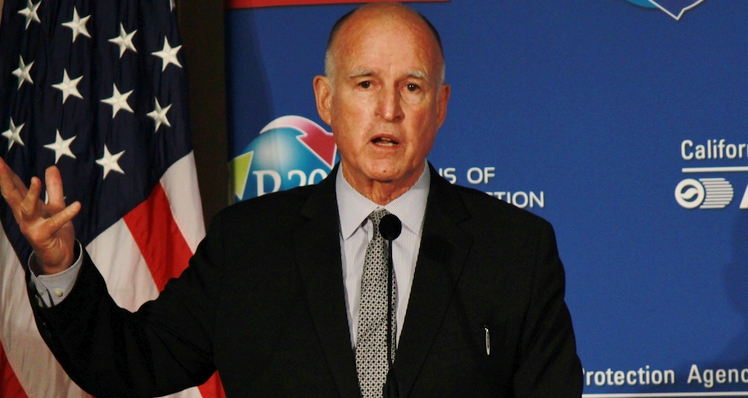On Thursday, the Picayune Rancheria of Chukchansi Indians Tribal Council announced that it has filed a lawsuit against California Governor Edmund G. Brown. The suit challenges the legality of the Governor’s affirmation of a Department of the Interior decision in 2012 that led to the North Fork Compact.
In 2014, 61 percent of California voters (Proposition 48) rejected that compact, which would have allowed Las Vegas-style gaming at a 305-acre site near Madera almost 50 miles away from the North Fork Reservation.
Picayune Rancheria of Chukchansi Indians Tribal Chairwoman Claudia Gonzales said that the new North Fork scheme ignores the wishes of California voters and that decades of tribal gaming regulations would be undone opening the floodgates for off-reservation casinos to be built anywhere in the state. Gonzales commented further saying, “Our Tribal Council is willing to stand up and defend Tribes like ours who have followed the rules and to tell the Governor and other politicians to listen to the overwhelming voice of Californians and stop the North Fork plan once and for all,” according to PR Newswire.
The March 18 lawsuit filed in Madera County Superior Court, (Picayune Rancheria of the Chukchansi Indians v. Edmund G, Brown, Governor of California), challenges the validity of Governor Brown‘s affirmation of then-Secretary of the U.S. Department of the Interior, Ken Salazar’s determination to allow a 305 acre plot of land in Madera County to be placed into trust for the North Fork Rancheria Band of Mono Indians to be used for casino gaming.
Governor Brown’s letter to the Secretary of the Interior made it clear that the only reason he concurred was because the compact being entered into with the North Fork Band included provisions that addressed several specific concerns. Among those concerns was the impact the North Fork casino would have on Wiyot and Picayune Tribes and local governments. Proposition 48 in November 2014 rejected the compact that addressed those concerns with 61 percent of California voters, including those in Madera County making it clear they were not in agreement.
Since voters overwhelmingly rejected the compact, North Fork supporters have pursued their own legal avenues and continued negotiations with State and Federal authorities to breathe life into their soundly defeated plan. Chairwoman Gonzales said that by doing so special interests and the tribe’s out-of-state investors are ignoring decades of compacts and the wishes of a majority of California voters, unlike the Picayune Rancheria who are siding with the voters. She said the tribe is pursuing all options, both legal and legislative, in order to ensure the new North Fork Casino plan is not realized.
Two weeks ago the public was alerted to some politicians dismissal of the voters will by moving forward with a compact when the Tribe sponsored a seven-day radio blitz and full-page ads in all of the state’s major newspapers. The lawsuit by the Picayune Rancheria is the second part of the effort to stop the North Fork plan. The tribe is also pursuing legislative remedies through their Washington D.C. representatives.
In related news, last month a federal judge ruled the Legislature acted in bad faith in its failure to approve a gaming compact with the Enterprise Rancheria of Maidu Indians. The 23-page opinion by U.S. District Judge Troy Nunley was delivered in a 2014 suit filed by the tribe against the state after the legislature failed to act on a Class III compact signed in 2012 by Governor Brown.



